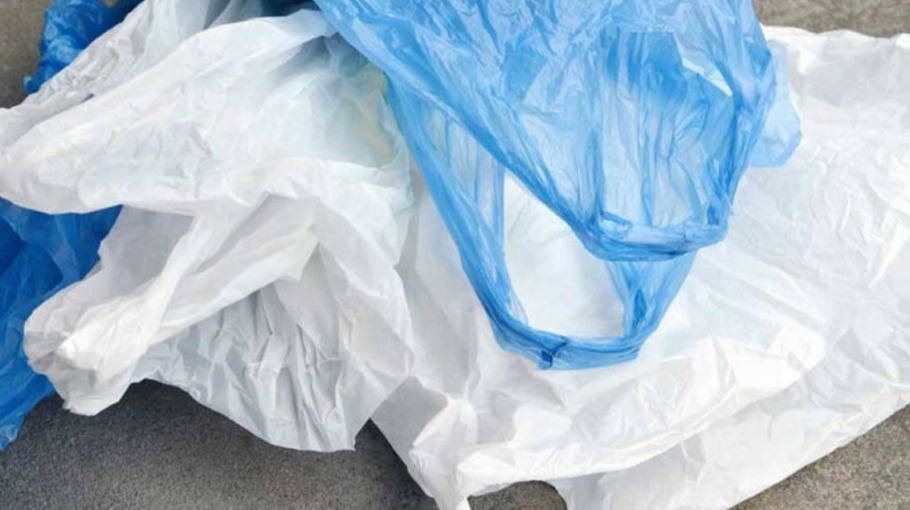Govt to enforce ban on polybag after 22 yrs
Polybags won’t be used in superstores from Oct 1

Bangladesh became the first country in the world to ban plastic and polythene bags in 2002, but the presence of the non-biodegradable items is still rampant across the country.
The ban was imposed on the manufacture, import, marketing, sale, stock, distribution and commercial use of all kinds of polythene shopping bags. Almost every shop across the country still uses polybags as before. It seems that it does not look like a ‘banned item’.
Against this backdrop, the government is going to take an action plan to implement the ban almost after 22 years. The Ministry of Environment, Forests and Climate Change has taken an initiative in this regard.
As part of the action plan, the ministry has already directed the super shops not to use polythene shopping bags and polypropylene bags from October 1.
Syeda Rizwana Hasan, adviser to the Ministry of Environment, Forests and Climate Change, at a meeting on Monday said that from October 1, no polythene shopping bags and polypropylene bags can be kept and given to customers in super shops.
“As an alternative, jute and cloth bags will be placed in or in front of all super shops for customers to purchase, while the youths and students will get involved in this initiative,” she added.
As per the law, polythene shopping bags have been banned since 2002. Efforts continued for some time after amendment to the law but finally it did not work. The ban has not been effective. Against this backdrop, the interim government is taking such a new initiative with an action plan.
“We have decided to implement the ban on plastic and polybags. We are beginning our initiative through implementing the ban in super shops,” Syeda Rizwana Hasan told the Bangladesh Post.
The adviser held the meeting with the stakeholders in her office at Bangladesh Secretariat as part of the government’s initiative to prepare the action plan. Representatives from various super shops were present at the meeting. Among them, CSD Bazaar, Unimart, Chaldal, Wholesale Club, Swapna, Agora, Mostafa Mart, Daily Super Shop, Prince Bazaar Limited, Shapla Super Shop, and Almas Super Shop.
Syeda Rizwana Hasan told the meeting that the advertisement of banning shopping bags will be widely circulated in print and electronic media from September 15. Public notice will be published in newspapers as well, she added.
The Ministry of Textiles and Jute will hold meetings with all the super shops within a week and take necessary measures to ensure the supply of shopping bags made of jute.
The Department of Environment (DoE) in association with ESDO will organise a fair for manufacturers of alternative eco-friendly materials/jute/textile bags by September 30. The super shop authorities and producers can discuss their demand and supply at the fair.
Environmentalists welcomed the decision of prohibiting polybags in super shops from October 1. “It is a good sign. As plastic and polybags are a significant cause of environmental pollution, we believe that the government will take immediate action to shut down factories manufacturing polybags and plastic containers across the country and seize their machinery,” said Sharif Jamil, member secretary of Dhoritri Rokhhay Amra (DHORA).
Talking to the Bangladesh Post, the environmentalist said that the previous governments were responsible for the rampant use of polybags in the country.
Welcoming the government’s initiative, Professor Dr. Ahmad Kamruzzaman Majumder, chairman of Department of Environmental Science at Stamford University Bangladesh; said that the super shops should carry out the government’s decision properly while authorities concerned should monitor the situation regularly. “We believe that Syeda Rizwana Hasan will make a polybag-free Bangladesh as it is harmful to the environment,” he said.
The government imposed the ban on polybags on April 8 in 2002 through an amendment to the ‘Bangladesh Environment Conservation Act, 1995’. As per the amended law, if anyone is found violating the ban he would face an imprisonment of 1-10 years, or a fine of Tk 50,000-10 lakh, or both.
The High Court on January 6 in 2020 asked the authorities concerned to enforce the plastic ban seriously and issued an order to reduce use of polybags. The court also asked the authorities concerned to remove polybags completely from all restaurants and shopping malls, especially in coastal regions, by 2022.
The directive was issued after hearing a writ petition jointly filed by the Bangladesh Environmental Lawyers Association (BELA) and 10 other environmental organisations.
Despite the government ban and the High Court order, the polybags remain ubiquitous in defiance of law.
BELA’s chief executive Syeda Rizwana Hasan has become adviser to the present interim government and she holds the charge of the Ministry of Environment, Forests and Climate Change. She has taken the decision just after a month of taking charge.
Plastic is a non-perishable commodity and throwing away used plastic bags not only increases garbage but also leads to air pollution when burned. Similarly, these bags cause sewerage lines to become clogged, which create drainage problems.
A study found that only 10-15 percent of plastic and polythene bags are properly disposed of or recycled after use. Most of it ends up in drains, sewage pipes, and open areas, and this is also responsible for the waterlogging problem in Dhaka city.




